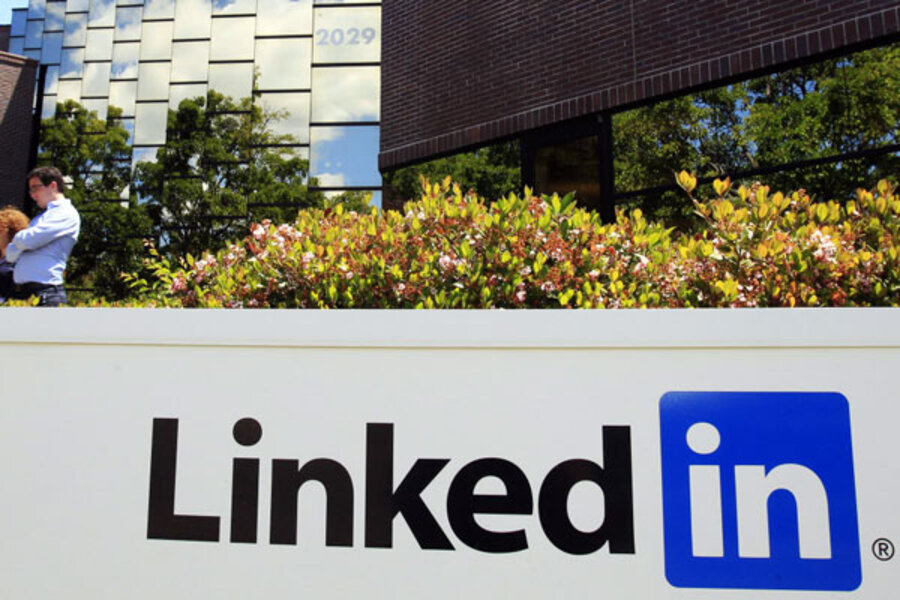LinkedIn investigation possible theft of six million passwords
Loading...
| LONDON
Business social network LinkedIn said it is investigating reports that more than six million passwords have been stolen and leaked onto the Internet.
Although LinkedIn did not confirm if any user data had been hacked or leaked, researchers at U.K. Web security company Sophos say they have confirmed that a file posted online does contain, in part, LinkedInpasswords "hashes." That's a way of encrypting or storing passwords in a different form.
Graham Cluley, a consultant with Sophos, recommended that LinkedIn users change their passwords immediately.
LinkedIn has a lot of information on its more than 160 million members, including potentially confidential information related to jobs being sought. Companies, recruiting services and others have accounts alongside individuals who post resumes and other professional information.
There's added concern that many people use the same password on multiple websites, so whoever stole the data could use the information to access Gmail, Amazon, PayPal and other accounts, Cluley said.
Cluley said hackers are working together to break the encryption on the passwords.
"All that's been released so far is a list of passwords and we don't know if the people who released that list also have the related email addresses," he said. "But we have to assume they do. And with that combination, they can begin to commit crimes."
It wasn't known who was behind such an attack.
LinkedIn Corp. referred repeated requests for comment to the company's Twitter feed, where it said its team was "looking into reports of stolen passwords."
Two hours later, the company posted a second tweet saying that it was still unable to confirm if a security breach had occurred.
While the passwords appear to be encrypted, security researcher Marcus Carey warned that users should not take solace from such security measures.
"If a website has been breached, it doesn't matter what encryption they're using because the attacker at that point controls a lot of the authentication," said Carey, who works at security-risk assessment firm Rapid7. "It's 'game over' once the site is compromised."
He said that if the breach is confirmed, he expects LinkedIn to require users to change their passwords with the threat of locking them out of the site if they don't. Full containment of a breach would only be possible if every single password is changed or users are disabled, he said.
Cluley also warned that LinkedIn users should be careful about malicious email generated around the incident. The fear is that people, after hearing about the incident, would be tricked into clicking on links in those emails. Instead of getting to the real LinkedIn site to change a password, it would go to a scammer, who can then collect the information and use it for criminal activities.
Shares of LinkedIn, which is based in Mountain View, California, fell 36 cents, or 0.4 percent, to $92.64 in early afternoon trading Wednesday.





